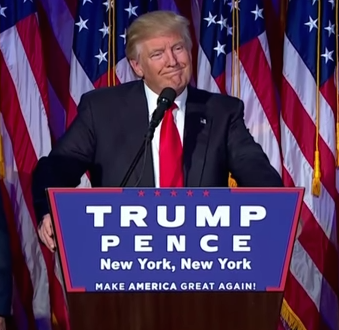What’s Next for Trump and Taiwan?

Before President-elect Trump’s recent exchange of greetings with Taiwanese leaders, Gordon G. Chang, author of The Coming Collapse of China, spoke at the conservative think tank Heritage Foundation , giving his take the incoming administration and the two Chinas.
Chang reminded the audience of Trump’s campaign statements, “He famously questioned the post-war international system” (i.e. NATO and Cold War alliances) and, “in March, he shocked East Asia that South Korea and Japan should develop their own nuclear weapons.” Chang continued, “In July, he stunned Europe when the NATO Treaty did not obligate the United States to come to the defense of an attacked member.” He doubted that Trump is the proclaimed “agent of change” in United States foreign relations, as Trump advisor Peter Navarro put it.
He warned that the Chinese Communist government has been provoked by Trump’s campaign rhetoric, “Chinese state media, in March, noticeably changed its views on Trump because of his comments on treaty obligations.” Chang added, “China is threatened by Trump” and “they have to defang him quickly [so] he does not do damage to their economy quickly.” China’s reactions demonstrate that they have “gotten this all wrong,” said Chang, and their erroneous beliefs may push them to” become more dangerous and bellicose.”
If Taiwan is attacked by China, Chang said, “I think Trump will be forced to defend Taiwan.” He pointed to Harry Truman, who said he would not intervene in South Korea if there was an invasion, but intervened when tanks rolled into South Korea. In Chang’s words, “Trump surely doesn’t want to be known as the [Neville] Chamberlain of the 21st century.”
Chang asserted that China will not be successful in seizing Taiwan, even if Trump pulls the United States out of Asia. He warned, “China will not continue its upward trajectory” and detailed the following:
“The motor of China’s rise over the last three decades, the economy, looks exhausted. And while the economy is stumbling, the political system is fracturing, social fabric is decaying, its environment is deteriorating, its people are leaving and its demography is starting its century-long decline.”
Chang added, “Bloomberg [reported that the] net capital outflow of China amount to $1 trillion,” which demonstrated that China’s economy has slowed significantly. He said that statistics like these show that “China is held together only by the Communist Party’s coerciveness” and the fears and predictions of a stronger China “will not hold true.”
China has made more enemies than friends in recent years, Chang noted, “We’ve seen the region coalesce against [China].” Pro-China leaders in India, Sri Lanka and Taiwan lost recent elections, which play into the geopolitics of Asia and Chinese tactics.




